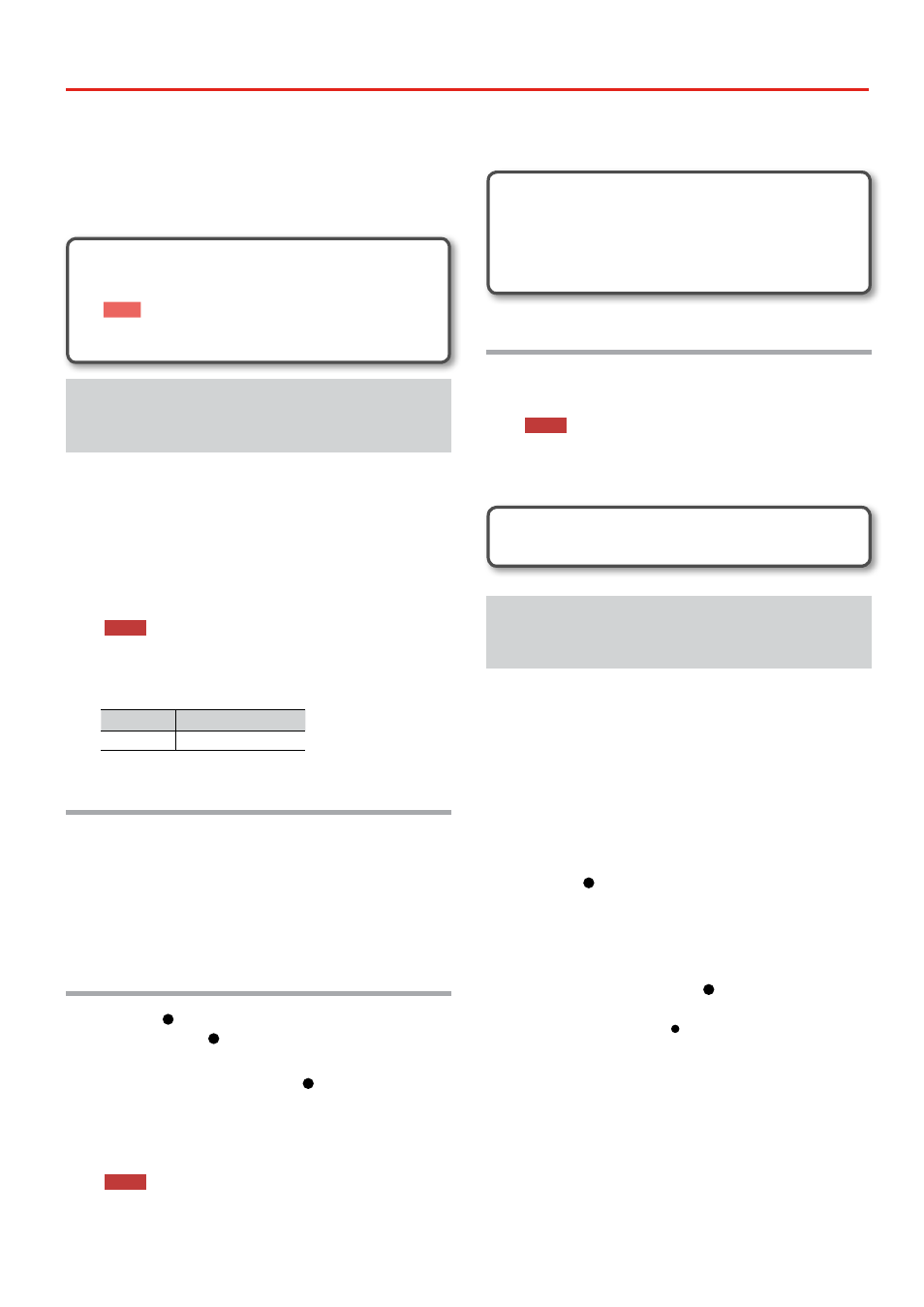Recording your performance, Recording your music as audio data (wave), Song (overdub) – Dexibell CLASSICO L3 76-Organ User Manual
Page 37: Recording your performance" (p. 37), Before you start recording, Starting/stopping recording, Listening to your recording, Recording as audio data, About the recording files, How to recall your recording at the later stage

37
Recording Your Performance
14
The CLASSICO L3 allows you to record your performance and save it
internally or to an USB storage device.
Record and play back what you've played on the instrument can be an
effective practice aid.
Recording as Audio Data
Your performance will be recorded as audio data. The recorded song can be
used on your computer, phone and in any audio player.
NOTE
To use this method of recording, you must connect an USB drive (sold
separately) to the USB Memory port (p. 18).
Recording Your Music as Audio Data
(WAVE).
This useful function allows professional quality stereo recordings.
You can reproduce directly by a portable music player by using a
computer.
Recording are saved in the external USB Memory (commercially available).
In addition, the CLASSICO L3 allows you to record everything that is
connected to the AUDIO IN socket. You can reproduce a backing audio
track by an external player connected to the AUDIO IN socket, play
along with your instrument in order to practice and then record your
performance.
NOTE
• You will need an USB Memory (commercially available) to record
your performance.
Audio Recorder format specifications
Audio Format Specification
WAV
48 kHz, 32 bit, Stereo
Before you start recording
1.
Connect the USB Memory to which you wish to save
the audio data. See "Connecting an USB Memory
(commercially available)" (p. 18).
2.
Prepare everything you want to record: select the
tone and the keyboard mode that you want to use for
performing
.
Starting/stopping recording
3.
Press the [ ] (Rec) button to start recording.
The indicator of the [ ] button lights and the CLASSICO L3 starts to
recording everything you play on the keyboard.
4.
At the end of the song, press the[ ] (Rec) button to stop
recording.
The recording stops and the indicator button lights off.
Your audio file is saved to the “Recording” folder on the USB
memory.
NOTE
Do not disconnect the USB Memory during the song recording.
About the Recording Files
The audio files are saved in the "Recording" folder on the USB Memory.
If the "Recording" folder doesn't exist, it is automatically created within the
first recording.
The songs are saved with a different progressive number: rec_0001.wav,
rec_0002.wav and so on. Take in consideration that only the last recording is
available for playback with song number "99".
Listening to your recording
5.
Press the [
*-,
] button to listen to your song.
If you want to re-record again, repeat from step 3.
NOTE
You should always safely eject the USB Memory before
physically unplugging it from USB socket. Before to unplug
the USB Memory use the "USB REMOVE" function. See "Safely
Remove the USB Memory" (p. 18).
How to Recall your Recording at the later stage
Refer to "Selecting your previous Recording" (p. 36).
How to Record your Performance over
an Existing Audio Song (Overdub)
This is a technique used in audio recording. While listening to an
existing recorded audio song, play a new performance along with
it. All is recorded in a new song.
1.
Connect the USB Memory to which you wish to save
the audio data. See "Connecting an USB Memory
(commercially available)" (p. 18).
2.
Prepare everything you want to record.
3.
Load a existing audio song. See "Select the song" (p.
4.
Press the [ ] (Rec) button to start recording.
5.
Press the [
*-,
] button to start the playback of the audio
song as background.
6.
Play your performance while listening to the audio song.
7.
At the end of song, press the [ ] (Rec) button to stop
recording.
The recording stop and the
[ ]
indicator lights off.
.
8.
Press the [
*-,
] button to listen your song.